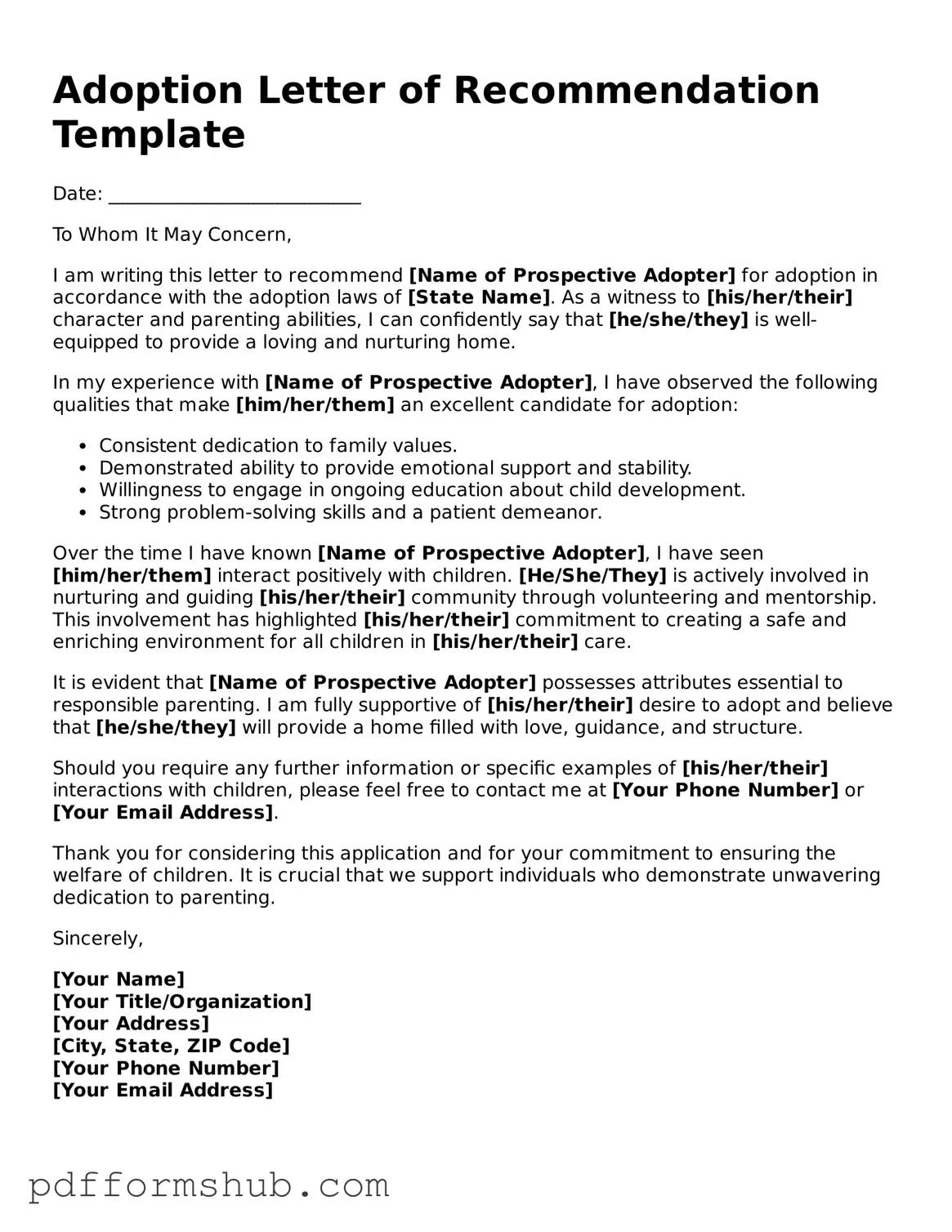Valid Adoption Letter of Recommendation Form
The Adoption Letter of Recommendation form is a crucial document that provides insight into a prospective adoptive parent's character and suitability for raising a child. This form typically includes endorsements from individuals who can attest to the applicant's parenting abilities, values, and overall readiness for adoption. Completing this form is an important step in the adoption process, ensuring that children are placed in nurturing environments.
Ready to take the next step? Fill out the form by clicking the button below.
Customize Form

Valid Adoption Letter of Recommendation Form
Customize Form

Customize Form
or
Free PDF Form
Short deadline? Complete this form now
Complete Adoption Letter of Recommendation online without printing hassles.